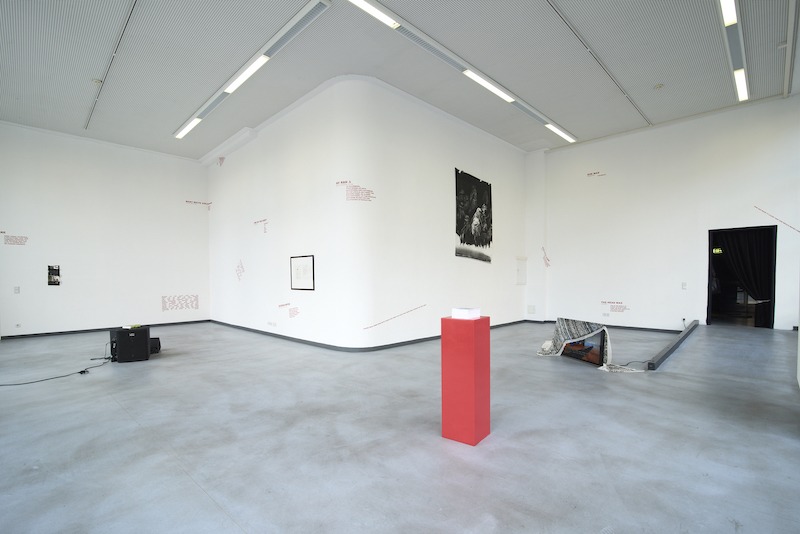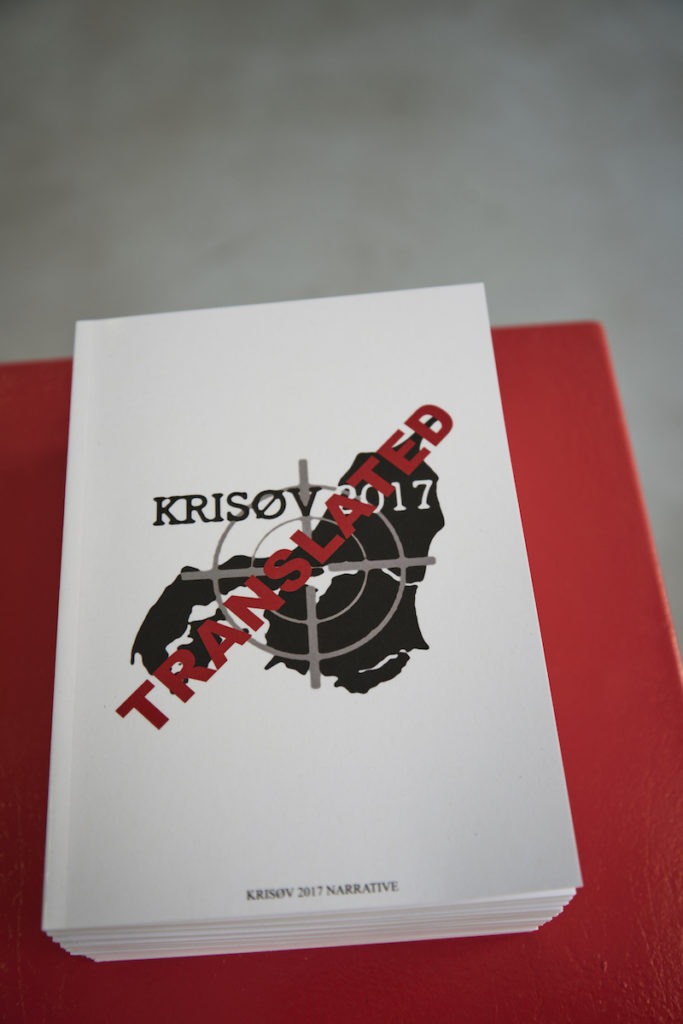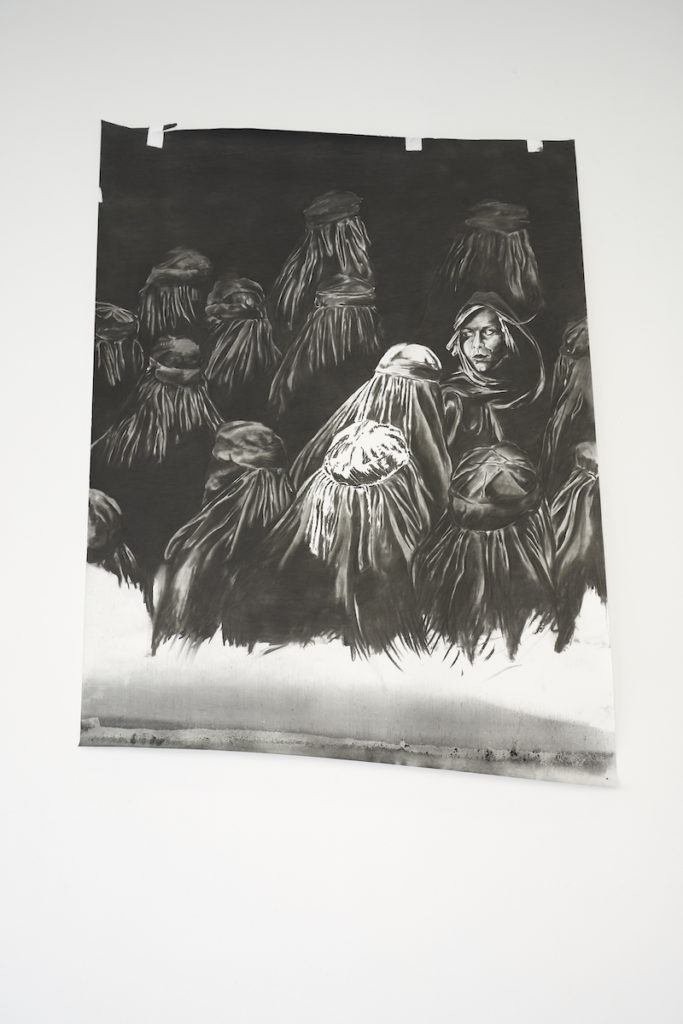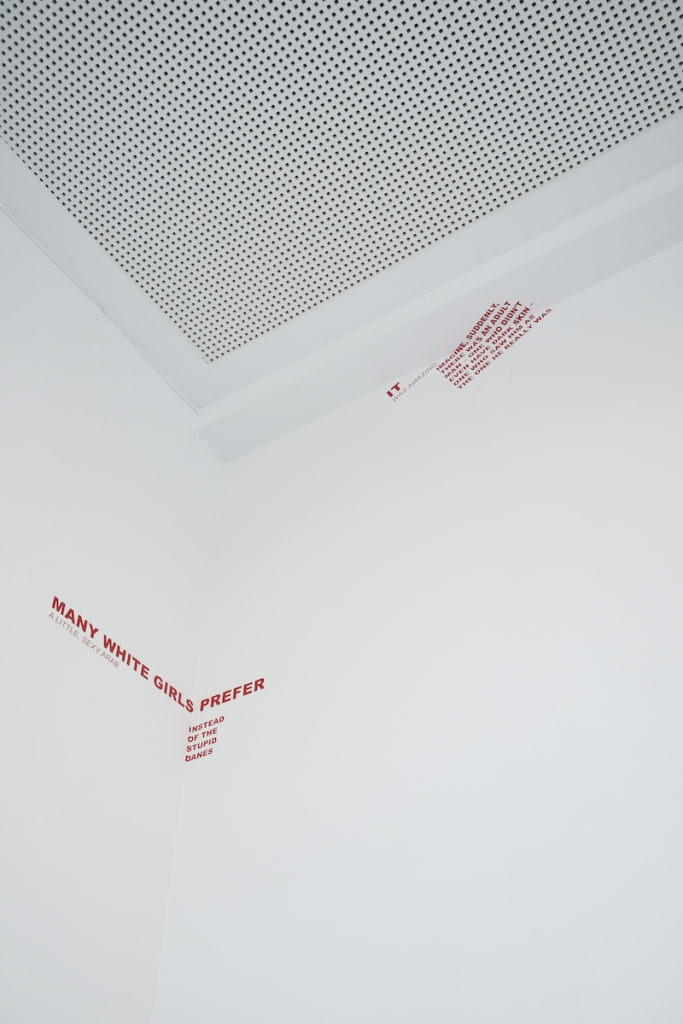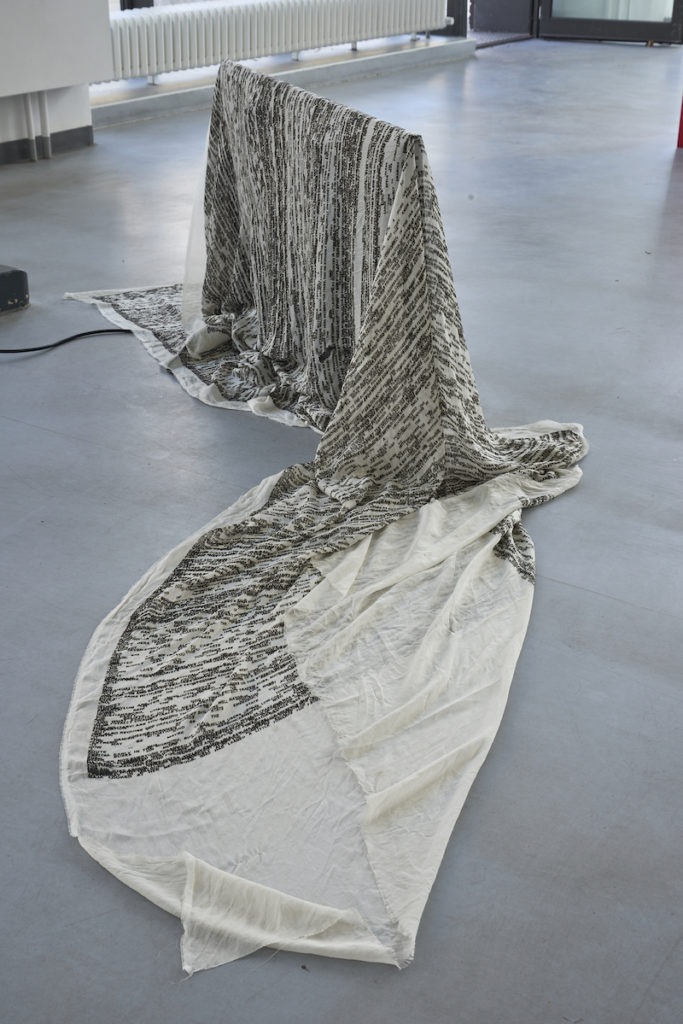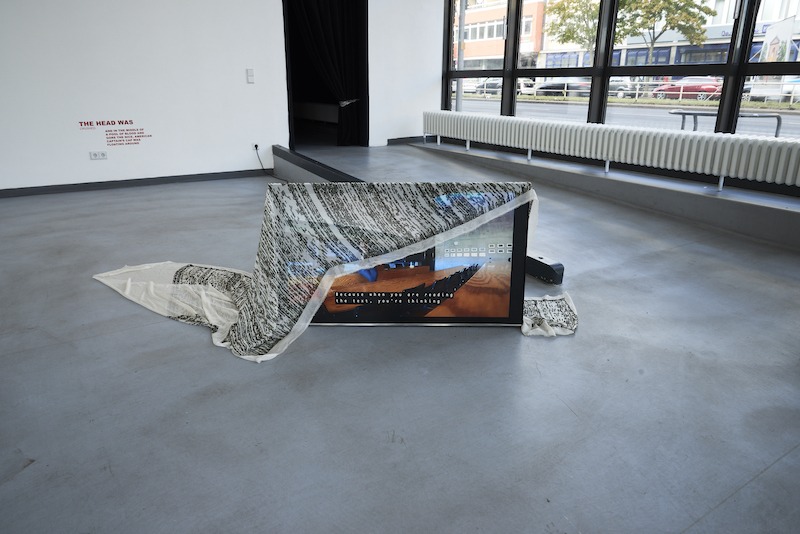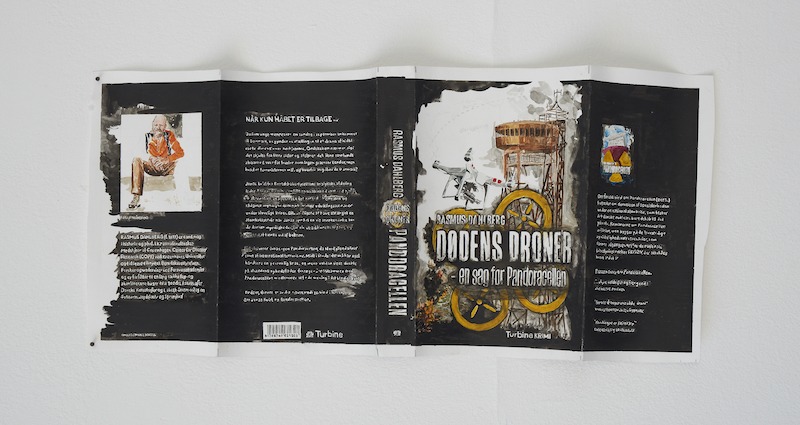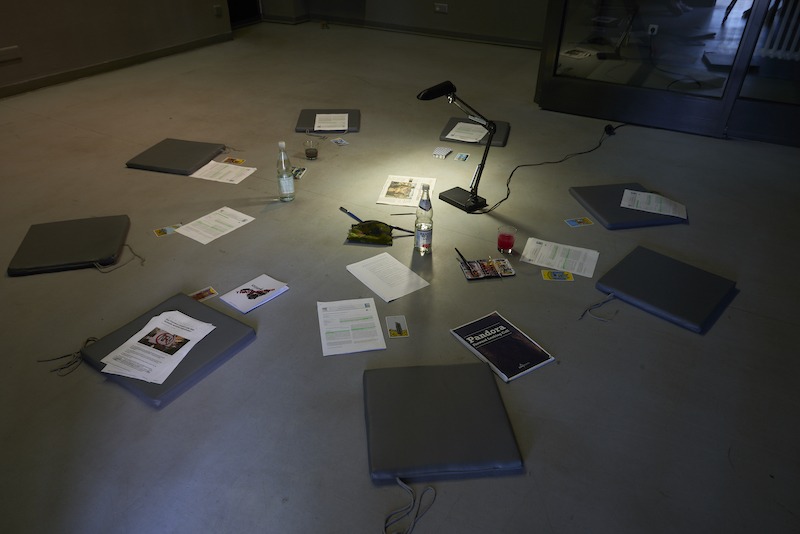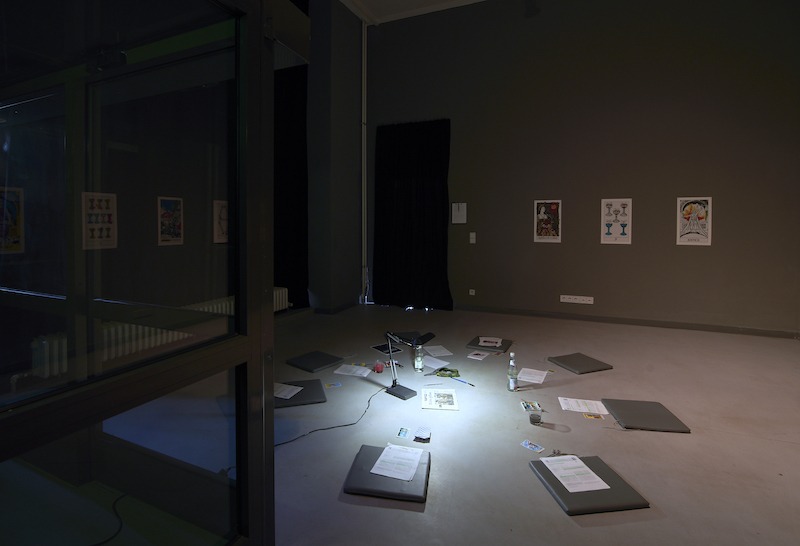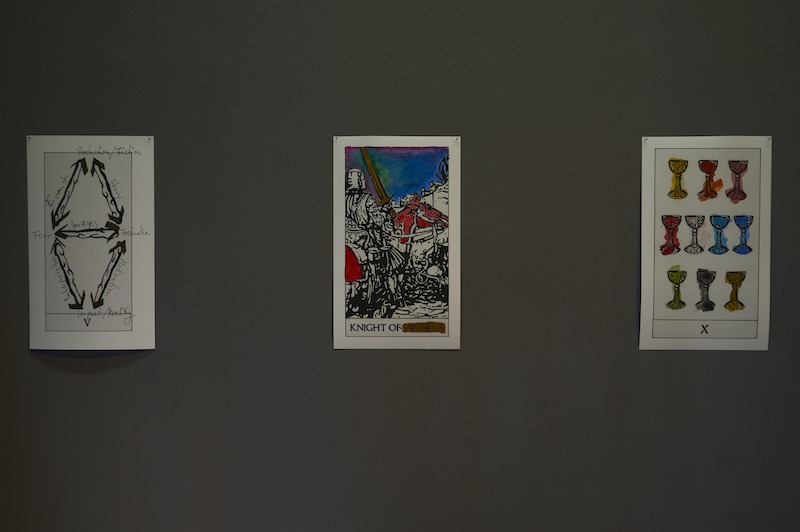Peter Voss-Knude
13 Sep - 26 Oct 2019
THE LANGUAGE OF TERROR IS TERROR ITSELF
THE TERROR OF LANGUAGE IS TERROR ITSELF
THE TERROR OF TERROR IS LANGUAGE ITSELF
An exhibition by Peter Voss-Knude curated by Solvej Helweg Ovesen within the frame of the programme SoS (Soft Solidarity), conceived by Nataša Ilić and Solvej Helweg Ovesen at Galerie Wedding
13.09 – 26.10.2019
“I had grown increasingly afraid of political discussions in which us-and-them rethorics short circuited any sort of progression in arguments. As a solution, I figured that the price I had to pay would be to position myself and my studio within the body of what I was critical towards, the military,” says the Danish artist Peter Voss-Knude. Advancing this exhibition Voss-Knude had collaborated with the Danish Armed Forces for several years to explore the patriarchy as well as the emotional sides of life with the soldiers. The artist was doing fieldwork and met soldiers who agreed to trust their stories with him. He later musically composed these stories into two records. (“Peter & the Danish Defense”, 2017). Both records center around the question of mutuality within language: is it possible to understand something you have not experienced yourself?
In the exhibition at Galerie Wedding – Raum für zeitgenössische Kunst, Voss-Knude focuses on the use of language in a document called “KRISØV17” („Crisis Exercise 2017”) that he has, as a result of his above mentioned project, gained access to. The text is a narrative written for a national military exercise, wherein Denmark is hit by a fictive, multilateral terrorist attack. The works in the exhibition are all developed as a critical reaction to this narrative; many of them spread as text fragments all around the exhibition space. The artist suggests that by discovering this special document, which he also translated (DK/ENG), as well as the way we talk about terror, is part of creating terror. The three languages of terror criticized in the exhibition are the news media language, the architectural measures of protection, as well as popular prejudiced imaginations like “KRISØV17”.
One core work is a bombastic 1.1-ton rose quartz crystal stone placed in front of the gallery. Rose quartz is a material commonly attributed with healing qualities and here, given its extraordinary size, it indeed would physically protect a body from a vehicle attack. With this gesture, the artist suggests parallels between the methods of storytelling used by national security agencies and those of a psychic medium, who is looking into the future. Can one ‘crystallize’ the logic of walls and barricades by placing a heavy crystal on a public square? Weaving together the imagined with the real this sculpture proposes that resistance to the hate that terrorists aim to incite, could be found in the insistence on languages of care.
With this exhibition in the context of the framework of Soft Solidarity (SoS) at Galerie Wedding, we wish to ask if it is possible to think of other caring responses than the known military and media defense mechanisms to the conflicts that terrorism deters from? How can we avoid creating images of them and us as well as places of fear by reacting differently towards terror conflicts?
THE TERROR OF LANGUAGE IS TERROR ITSELF
THE TERROR OF TERROR IS LANGUAGE ITSELF
An exhibition by Peter Voss-Knude curated by Solvej Helweg Ovesen within the frame of the programme SoS (Soft Solidarity), conceived by Nataša Ilić and Solvej Helweg Ovesen at Galerie Wedding
13.09 – 26.10.2019
“I had grown increasingly afraid of political discussions in which us-and-them rethorics short circuited any sort of progression in arguments. As a solution, I figured that the price I had to pay would be to position myself and my studio within the body of what I was critical towards, the military,” says the Danish artist Peter Voss-Knude. Advancing this exhibition Voss-Knude had collaborated with the Danish Armed Forces for several years to explore the patriarchy as well as the emotional sides of life with the soldiers. The artist was doing fieldwork and met soldiers who agreed to trust their stories with him. He later musically composed these stories into two records. (“Peter & the Danish Defense”, 2017). Both records center around the question of mutuality within language: is it possible to understand something you have not experienced yourself?
In the exhibition at Galerie Wedding – Raum für zeitgenössische Kunst, Voss-Knude focuses on the use of language in a document called “KRISØV17” („Crisis Exercise 2017”) that he has, as a result of his above mentioned project, gained access to. The text is a narrative written for a national military exercise, wherein Denmark is hit by a fictive, multilateral terrorist attack. The works in the exhibition are all developed as a critical reaction to this narrative; many of them spread as text fragments all around the exhibition space. The artist suggests that by discovering this special document, which he also translated (DK/ENG), as well as the way we talk about terror, is part of creating terror. The three languages of terror criticized in the exhibition are the news media language, the architectural measures of protection, as well as popular prejudiced imaginations like “KRISØV17”.
One core work is a bombastic 1.1-ton rose quartz crystal stone placed in front of the gallery. Rose quartz is a material commonly attributed with healing qualities and here, given its extraordinary size, it indeed would physically protect a body from a vehicle attack. With this gesture, the artist suggests parallels between the methods of storytelling used by national security agencies and those of a psychic medium, who is looking into the future. Can one ‘crystallize’ the logic of walls and barricades by placing a heavy crystal on a public square? Weaving together the imagined with the real this sculpture proposes that resistance to the hate that terrorists aim to incite, could be found in the insistence on languages of care.
With this exhibition in the context of the framework of Soft Solidarity (SoS) at Galerie Wedding, we wish to ask if it is possible to think of other caring responses than the known military and media defense mechanisms to the conflicts that terrorism deters from? How can we avoid creating images of them and us as well as places of fear by reacting differently towards terror conflicts?

